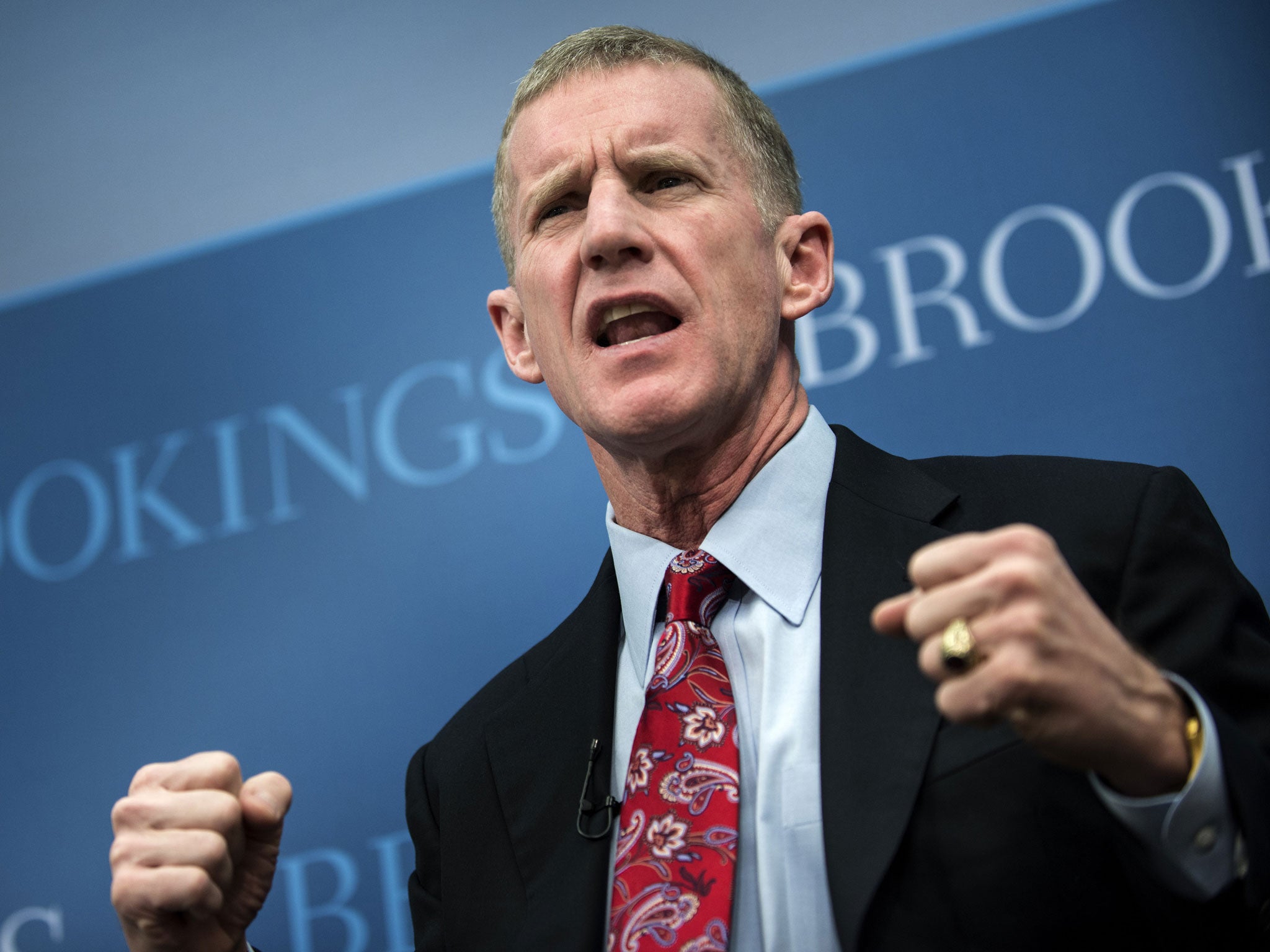Former US Commander Stanley McChrystal warns Afghanistan could descend into civil war when foreign troops leave
General Stanley McChrystal said that a civil war could be avoided if Afghanistan was backed by its allies

Your support helps us to tell the story
From reproductive rights to climate change to Big Tech, The Independent is on the ground when the story is developing. Whether it's investigating the financials of Elon Musk's pro-Trump PAC or producing our latest documentary, 'The A Word', which shines a light on the American women fighting for reproductive rights, we know how important it is to parse out the facts from the messaging.
At such a critical moment in US history, we need reporters on the ground. Your donation allows us to keep sending journalists to speak to both sides of the story.
The Independent is trusted by Americans across the entire political spectrum. And unlike many other quality news outlets, we choose not to lock Americans out of our reporting and analysis with paywalls. We believe quality journalism should be available to everyone, paid for by those who can afford it.
Your support makes all the difference.Afghanistan could slip back into civil war if it does not continue to receive support from the West following the withdrawal of most international troops this year, a former US commander in the country has warned.
General Stanley McChrystal described the prospect of renewed internal conflict as a “worst-case possibility” which could be avoided provided the Afghan government received the backing it needed from its allies.
“I don't think the Taliban have the strength to come in and take over Afghanistan and, clearly, I think the greatest danger is it would break out into violence, either in direct civil war or maybe multi-party fighting,” he told the BBC Radio 4 Today programme on Tuesday.
“But that is the unnecessary outcome, in my view. There is enough capacity in that country, and certainly enough ties that bind, to avoid that. But I think that would be a worst-case possibility.”
General McChrystal, who was the architect of the US troop “surge” in 2009 but later resigned after critical comments he made about the Obama administration were published by Rolling Stone magazine, said the Afghans needed reassurance that help would be there if it was required.
“I think they do need partners as they go forward though, so I hope that a security arrangement is reached where they get some levels of support from people who have been their allies over the last decade and a half,” he said.
“What you really want is a consistency of partnership and that is to maintain in the minds of the Afghan people that we are reliable long-term partners and that is going to take enough people to do certain tasks, to provide some logistic support, to provide advice, and also to be around as a representation that they are not alone.”
General McChrystal also expressed concern about the use by the Americans of unmanned drones to target leading Taliban figures.
While he acknowledged that they could be a highly effective weapon, he said it was important to consider their impact on the local population.
“There is a perception of arrogance, there is a perception of helpless people in an area being shot at like thunderbolts from the sky by an entity that is acting as though they have omniscience and omnipotence and you can create a tremendous amount of resentment inside populations,” he said.
PA
Join our commenting forum
Join thought-provoking conversations, follow other Independent readers and see their replies
Comments